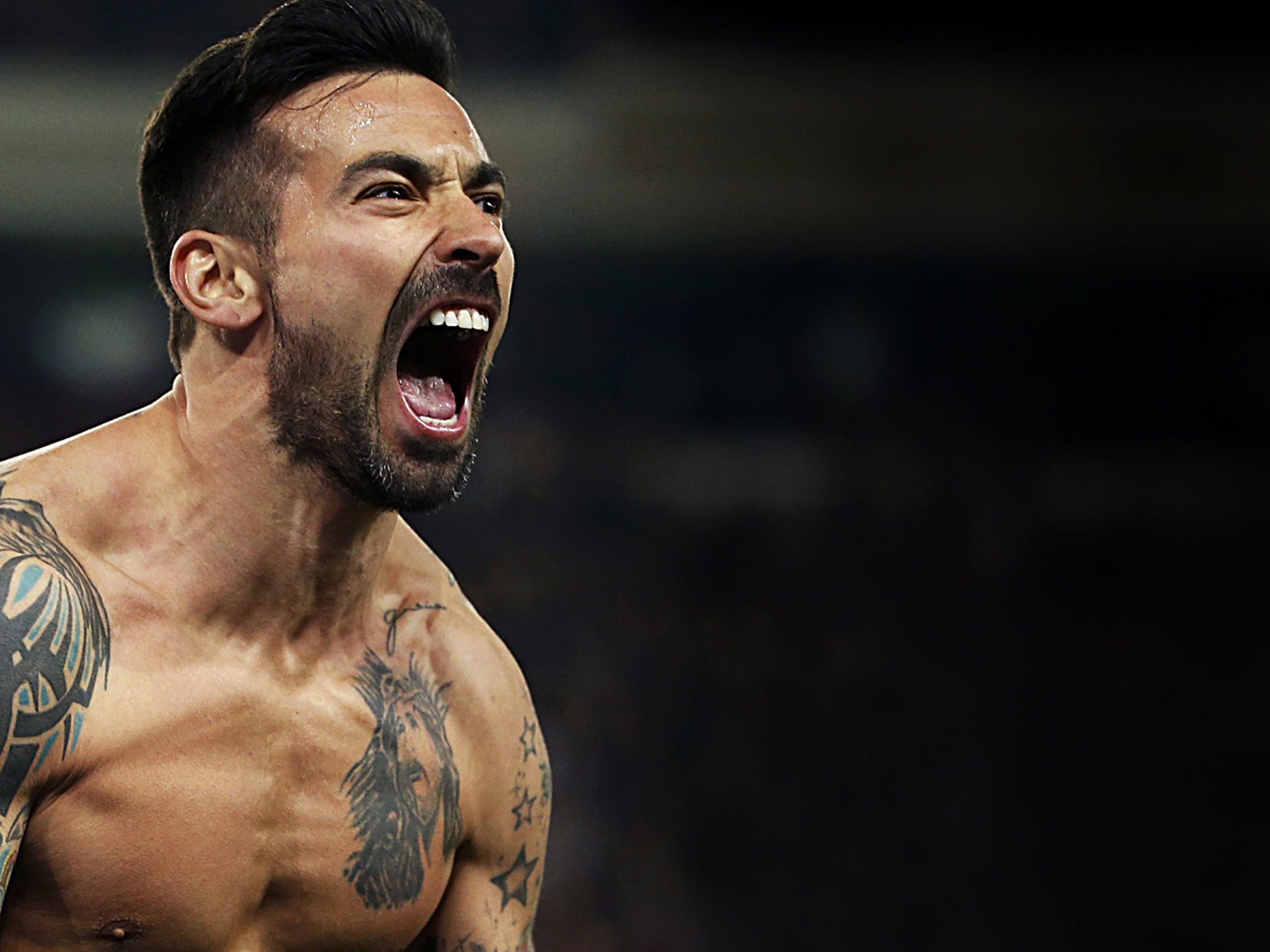Why the game in France is back in with a shout in the form of PSG and Monaco
PSG and Monaco’s participation in this week’s Champions League quarter-final reflects new power of Ligue 1, says John Lichfield in Paris

Most French football fans could tell you who scored for Crystal Palace against Manchester City last Monday night. How many English fans know that there was a pulsating match last Sunday between Paris Saint-Germain and Olympique Marseille which ended with a 3-2 away victory for the Parisian league leaders? The match was not just thrilling, it was a gripping exhibition of tactical chess between the Marseille coach, Marcelo Bielsa, and the PSG coach, Laurent Blanc.
French football pundits were in ecstasy. They said that it proved the French first division, Ligue 1, was matching the quality of Europe’s “big leagues” – the Premier League, La Liga and the Bundesliga.
“I have been criss-crossing Europe since September and this was the most spectacular match I have seen in any league,” said Frédéric Hantz, former coach of Sochaux and Bastia. Régis Dupont, one of the main football writers for L’Equipe, said the match confirmed Ligue 1 had “moved to a new dimension this season”.
When the Champions League resumes this week at the quarter-final stage, two clubs out of eight will be French. There will be no team from the Premier League, supposedly the most competitive – and certainly the most expensive – national league in the world. The surviving French clubs, PSG and Monaco, reached the last eight by defeating English clubs, Chelsea and Arsenal, who were supposed to brush them aside. After Monaco won at the Emirates 3-1, the Lille coach René Girard said: “To those who say our league is shit, it proves there’s perhaps also shit elsewhere.”
Champions League: Guide to the quarter-finalists
Show all 8And yet only 18 months ago French clubs were threatening to go on strike because, they said, French tax laws made it impossible for them to compete fairly in Europe. One of the best-known French TV game summarisers Jean- Michel Larqué, a former France midfielder, said last year that Ligue 1 had become a “discount” contest staffed by the mediocre or the young and hopeful.
For the last two decades French football has been persistently stripped of its best players by clubs in the richer European leagues. No fewer than 162 French nationals have appeared in the Premier League since 1992, second only to the natives. An obvious exception has to be made for the two foreign-owned clubs in Ligue 1, PSG and Monaco, which benefit from Qatari or Russian millions.
It is not an accident that these are the teams which have reached the Champions League last eight. And yet the boom in Ligue 1 this season cannot be dismissed as a two-club phenomenon. A glance at the Ligue 1 table, with seven matches remaining, shows France will have a more thrilling season finale than England, Spain or Germany.
PSG, on 62 points, lead Olympique Lyonnais by one point. Marseille are another four points behind. Monaco (54), St Etienne (53) and Bordeaux (51) are fighting for the fourth spot. As the website Goal.Com pointed out recently, Ligue 1 players, and not just those from big clubs, shine in the Europe-wide statistics compiled by Opta. PSG’s terrific young Italian midfielder Marco Verratti, 22, is second only to Bayern Munich’s Xabi Alonso in passes completed in European top- flight games. Caen’s Mali midfielder, N’Golo Kanté is Europe’s tackle champion. Dimitri Payet, 28, of Marseille has more assists than any other European player.
How can this abrupt renaissance be explained? Jean-Michel Aulas, president of Olympique Lyonnais, told the Independent on Sunday yesterday: “The money available to PSG and Monaco created a kind of obligation or challenge. Other clubs had to react or we would have been confronted with a permanent two-horse championship. Marseille did it through the strength and passion of their fan base and by taking a gamble on an atypical coach. We did it by investing in our academy and in a stadium which will be one of the most advanced in Europe.”
The academy point is crucial. France continues to produce a constant stream of young talent – African as well as French. L’Equipe’s Dupont also points to the compound effect of the hundreds of millions of euros invested in French stadia and pitches before the European Championship finals in France next year. The average gate this season of 21,708, the highest of recent times, reflects the better facilities and the better football.
The problem is economic fundamentals remain stacked against French clubs, PSG and Monaco apart. French payroll taxes mean that a player earning €2m (£1.45m) a year costs a Ligue 1 club €3m. Compare the £2.5bn a year in TV rights which will go to Premier League clubs from next season with the €700m (£506m) a year earned from TV by the 20 clubs in Ligue 1. But Aulas is convinced the Premier League deal is the beginning of a “virtous spiral” which will force up the TV earnings of French clubs. “The success of Ligue 1 is not just something cyclical. It is here to stay,” he said.
Subscribe to Independent Premium to bookmark this article
Want to bookmark your favourite articles and stories to read or reference later? Start your Independent Premium subscription today.

Join our commenting forum
Join thought-provoking conversations, follow other Independent readers and see their replies